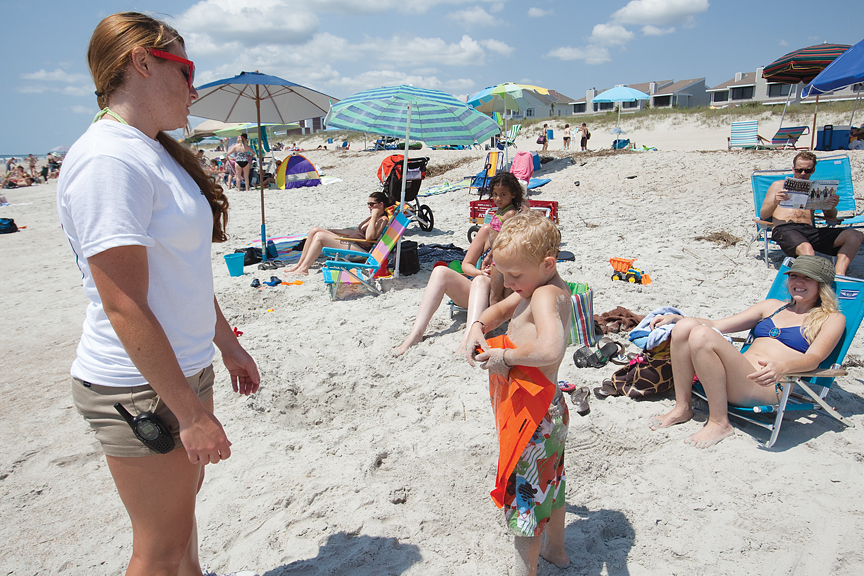Smoking is not allowed on Wrightsville’s beach strand. Yet Thursday, Oct. 22, volunteers picked up 130 cigarette butts around Johnnie Mercer’s Pier.
Some of them probably washed up in the recent high surf and heavy rain, volunteer Kim Beller said, but many of the butts were freshly littered. And she noticed the increase in butts on the beach well before the storm hit.
Cigarettes contain a piece of plastic in the filter that is “very toxic and dangerous to marine life,” Beller said. Numerous studies show when fish are put in the same water as cigarette butts, the toxins leaching into the water cause the fish to die.
“It’s not just the fact that it’s litter,” she said. “It’s toxic litter.”
Volunteers are still finding many fewer cigarette butts on the beach now than they did before the smoking ban was enacted, Beller said. Danielle Richardet, who did regular beach cleanups before and after the ban was put in place, said she gathered as many as 1,200 butts in 20 minutes before the ban but afterwards her collection numbers were in the single digits.
“It’s completely dropped compared to what it was,” Richardet said. But some are still worried that it’s picking up again.
In 2012, when the ban was enacted, the town funded the Beach Ambassadors, a program that hired citizens to walk the most congested parts of the beach strand during summer to educate people about the town’s littering and smoking rules.
“It was a great way of educating visitors to the beach in a positive way,” said David Cignotti, who was mayor at the time.
The town funded the program using about $3,000 a year of its allocation from the Tourism Development Authority. That pot of money also funds the island’s lifeguards and its marketing campaign.
The current board decided to distribute the Beach Ambassadors funding elsewhere.
“The board felt like the program did its job and helped resolve some issues we were having,” town manager Tim Owens said. “It became a budget issue and it got cut.”
But Beller and Cignotti agree it might be time to reinstate the program, because they have noticed an increase in cigarette butts on the beach since the program was defunded.
“From what I’ve seen in some of the beach sweeps I’ve done,” Cignotti said, “it seems like it dropped off heavily the first summer [after the ban] but these last couple years it’s been steadily rising.”
Enforcement was one of the board’s main concerns when the aldermen first voted on the smoking ban in 2010. Despite many residents speaking in support of the ban, the board voted it down 3-2, opting instead to increase the town’s fine for littering.
Residents decided to take the matter into their own hands.
They discovered if they got enough signatures, they could put the ban on the 2012 municipal election ballot as a referendum. Three hundred and twenty residents signed a petition and, in November, residents voted by a 2-1 margin to make Wrightsville the first non-smoking beach in the state.
In addition to the educational efforts by the Beach Ambassadors, local Boy Scout troops created cigarette butt receptacles to put at the street ends and Wrightsville Beach School students designed signage explaining the ban.
“Between the Boy Scouts, the local elementary school and the citizens overwhelming voting for it, the smoking ban was truly supported by our community,” Cignotti said. “It would just be good to see us put a little more effort into making it successful.”
email [email protected]




